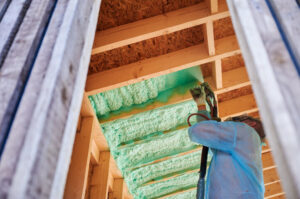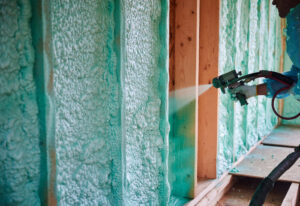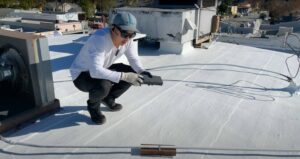
Construction Consumer Advocacy Institute
Foam Board Insulation
Part 3
We are starting the first of a series on insulation. Energy cost is going up and we need to do everything we can to help our family budgets and insulation can help us on our heating and cooling cost. The problem is that there are so many types of insulation that it’s confusing. That is why we at the Construction Consumer Advocacy Institute have been established. To educate us on everything you need to know.
If you ever have any questions, please remember that you can always contact us by email execdirector@constructionconsumeradvocacyinstitute.com

Blog Title: The Pros and Cons of Polyisocyanurate Insulation and Understanding Its R-Value
Blog Introduction: Insulation is a crucial part to any home construction or renovation project, particularly when it comes to ensuring that your home is energy-efficient and able to keep the indoor temperature comfortable. With many insulation types available in the market, it can be overwhelming to decide which one to use. One of the popular options is Polyisocyanurate insulation or also known as polyiso. In this article, we will be discussing what polyisocyanurate insulation is, how it works, and its pros and cons, particularly on its R-value.
What is Polyisocyanurate Insulation?
Polyisocyanurate insulation is a type of rigid foam insulation that has been in use since the 1970s. It is made using a combination of isocyanurate resins and polyurethane, which are foamed in place and used to create solid foam boards.
How Does Polyisocyanurate Insulation Work?
Polyisocyanurate insulation works by creating a barrier to prevent the movement of heat, also known as thermal resistance. Its closed-cell structure and low conductivity make it an excellent insulator. It can be used in different parts of the house, such as roofs, walls, and floors.
Pros of Polyisocyanurate Insulation:
High R-Value: Polyisocyanurate insulation is known for having a high R-value, ranging from R-6 to R-8 per inch. This means that it provides a better thermal resistance to your home, keeping the heat during winter and cold air during summer.
Moisture Resistance: Polyisocyanurate insulation has a high resistance to moisture, making it ideal for areas that are prone to moisture or water damage. It can help prevent the growth of mold and mildew inside the house.
Durable: Polyisocyanurate insulation has a longer lifespan compared to other types of insulation, such as fiberglass insulation. It can maintain its R-value for the life of the house.

Cons of Polyisocyanurate Insulation:
Not Environmentally Friendly: Polyisocyanurate insulation is not an eco-friendly product. It has a higher carbon footprint compared to other types of insulation.
Fragile: Polyisocyanurate insulation is brittle, and it can easily break. It is not recommended to install it in areas that are prone to foot traffic or possible impact, unlike other types of insulation.
More Expensive: Polyisocyanurate insulation is more expensive compared to other types of insulation. However, it usually pays off in the long run due to its superior insulation properties and durability.

Understanding R-Value:
R-value is a measure of insulation’s ability to resist heat flow. The higher the R-value, the more insulating power it provides. For polyisocyanurate insulation, it has an R-value of 5.6 to 8 per inch.

Conclusion:
Polyisocyanurate insulation offers many benefits in terms of energy efficiency, moisture resistance, and durability. Despite its higher cost and low eco-friendliness, its high R-value alone can make it worth the investment in the long run. We hope that this guide has provided you with valuable insights on the pros and cons of Polyisocyanurate insulation, and how its R-value plays a crucial role in maximizing its effectiveness in your home insulation. R-value, ranging from R-6 to R-8 per inch.
